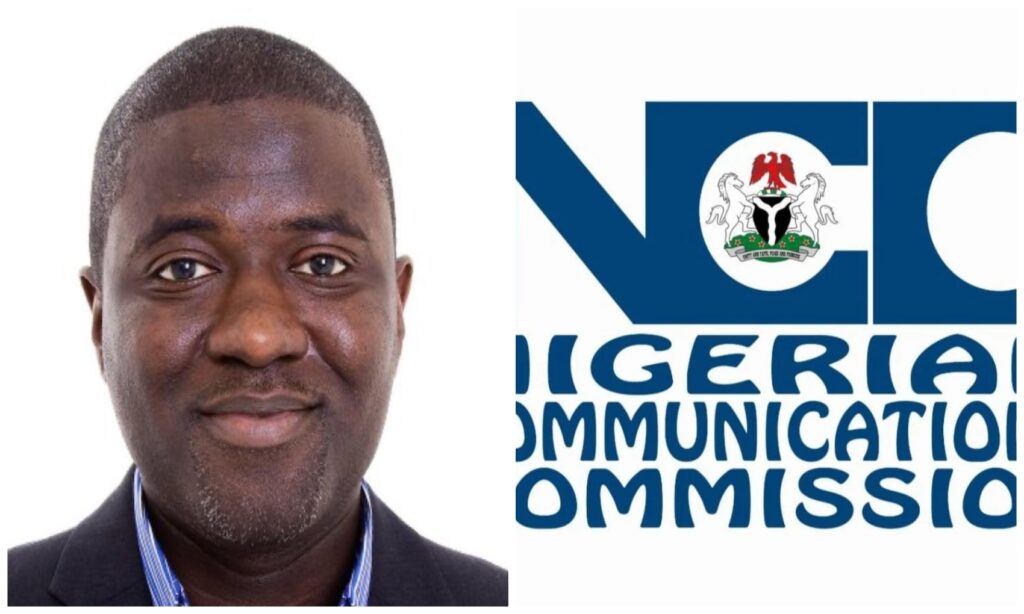Dr. Aminu Maida, the Executive Vice Chairman and Chief Executive Officer of the Nigerian Communications Commission (NCC), has underscored the vital role of information and communication technology (ICT) in combating financial crimes.
Addressing a diverse audience at the 11th Anniversary Lecture Series of RealNews Magazine held at the Ikeja Sheraton Hotel on November 7, 2023, Maida discussed the theme, “The Use of ICT in Curbing Financial Crimes.”
Join our WhatsApp ChannelHe said that financial crimes encompass a wide range of offenses, including insider abuse, money laundering, terrorism financing, proliferation financing, embezzlement, and various forms of fraud.
These crimes not only have severe economic and social implications but can also be associated with violent crimes, leading to the loss of lives and posing a significant threat to the stability and security of entities, be it a country, enterprise, or individual.
READ ALSO: Strong FinTech Essential For Boosting Financial Inclusion In Nigeria – NCC Boss
Maida emphasized that with the growing adoption of digital technologies and the transnational nature of these crimes, the scope of financial crimes has expanded, demanding a robust response. He elaborated on the pivotal role of ICT systems in preventing, investigating, and mitigating financial crimes.
These systems enable compliance with established standards, real-time monitoring, tracing, and analysis of digital transactions, and secure data storage and encryption technologies to safeguard sensitive financial data.
The Executive Vice Chairman pointed out that technological advancements have improved crime prevention and law enforcement. Advanced data analytics, artificial intelligence, and machine learning algorithms are used to detect trends indicative of criminal activities. Predictive police programs have emerged to foresee and prevent crimes, and digital forensics techniques have proven useful in criminal investigations.
The Nigerian telecoms sector’s growth has generated vast amounts of data daily. Dr. Maida highlighted the potential of advanced data analytics and artificial intelligence in identifying suspicious digital patterns related to criminal activities.
Collaboration with financial institutions can filter and identify suspicious patterns, enabling real-time transaction monitoring and a proactive approach to crime prevention.
The use of ICT tools such as blockchain, instant payments, artificial intelligence, machine learning, data analytics, and regulatory technology solutions has eased the battle against financial crimes. Maida explained how computer security incident response teams (CSIRT), digital forensics, biometric verification, and solutions like Palantir Technologies and Chainalysis are contributing to this effort.
However, he acknowledged several concerns related to the use of ICT in combatting financial crimes. These include threats to cybersecurity, the potential for false positives and algorithmic bias, the need for continuous capacity building, regulatory compliance challenges, and the need to keep pace with evolving technology.
Addressing these challenges, Maida reiterated the importance of inclusion and closing the digital divide, harmonizing regulations, continuous improvement and adaptation, and international collaboration to effectively combat financial crimes that often transcend borders.
He called for the sharing of intelligence, leveraging resources, and organizing international conferences to facilitate collaboration among nations.
Furthermore, Maida highlighted the role of ICT in combating financial crimes and urged a balanced approach to protect data privacy while preventing crime. He stressed the necessity of ongoing investment in ICT solutions, a multidisciplinary and multi-stakeholder strategy, and public education to mitigate the risks associated with technological advancements in criminal activities.
The lecture provided a platform for stakeholders to exchange knowledge and best practices in the ongoing fight against financial crimes, demonstrating the NCC’s commitment to securing Nigeria’s financial sector.
Emmanuel Ochayi is a journalist. He is a graduate of the University of Lagos, School of first choice and the nations pride. Emmanuel is keen on exploring writing angles in different areas, including Business, climate change, politics, Education, and others.


















Follow Us